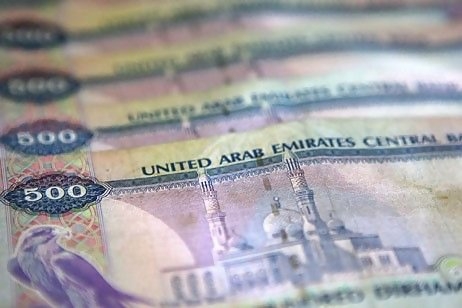The UAE economy has shown sustained resilience towards global and domestic challenges and is on course to record better growth prospects than the 3.5 per cent estimate of the International Monetary Fund, or IMF, the country’s central bank said. The UAE Central Bank, in its inaugural Financial Stability Review, observed that while Dubai may achieve four per cent growth or more as it was stated in the Dubai Economic Outlook for the year 2012, an equally high growth is expected in Abu Dhabi following the recent decisions to create two new industrial clusters and to go on with some landmark projects, the regulator said in review.
The central bank predicted that increased public spending and high oil prices would drive the UAE growth for the whole 2012
“Banks operating in the country are well-equipped to deal with major stress scenarios and contingencies,” it said.
High capital adequacy levels, together with robust provisioning policies and high profitability of the banks in the UAE enhance their capability to cope with major global or domestic stress. “Looking forward, the UAE banking system will continue to show a high level of resilience to future shocks,” it said.
The review said the country’s non-oil growth is expected to reach around four per cent this year, and inflation would remain moderate in line with the IMF’s estimate of 1.5 per cent for the year. Since banks are finalizing major debt restructuring deals with various entities, their non-performing loans will likely increase to reflect new terms and conditions, and peak around an average of eight to nine per cent compared with a ratio of 7.2 per cent at the end of 2011, the central bank said.
The UAE economy has shown sustained resilience towards global and domestic challenges
The well-diversified economy alongside the established infrastructure have enabled the UAE to maintain its position as one of the leading emerging economies in the region.
“The UAE economy showed resilience in the face of the corrections that took place in the local real estate and securities markets on the one hand and in the face of the spill-over from the international financial crisis on the other hand. This resilience is mainly due to high, albeit volatile, oil prices and the good performance of tourism and other services. Non-oil exports also played a supporting role during this period as the UAE economy is more anchored to the growing markets in the Gulf region, Asia and Africa.”
The central bank noted that after the economic contraction of the year 2009 where GDP at constant prices decreased by 4.8 per cent, led by a fall in manufacturing and real estate, the UAE economy has recovered. Economic growth reached 1.3 per cent in 2010 and 4.2 per cent in the year 2011. The prospects for 2012 are encouraging with the non-oil GDP growth expected to reach around four per cent.
Khaleej Times
14 September






















































